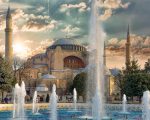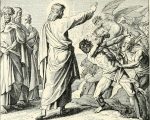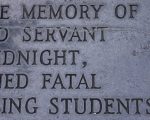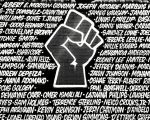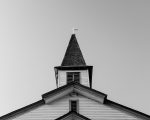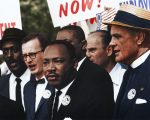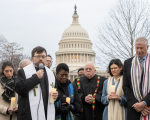Opinion
Antakya and Antioch
Angela Denker reflects on the aftermath of the worst earthquake in recent memory that struck Turkey and northwest Syria. Like all natural disasters and mass casualty events, as the death toll rises our ability to contemplate and synthesize the loss paradoxically decreases.
Churches That Don’t See Color Won’t Reach People of Color
Sociologist and educator Dr. Nabil Tueme uses Springtide Research Institute’s latest research report “Navigating Injustice: A Closer Look at Race, Faith & Mental Health” to argue that when faith leaders ignore racial/ethnic identity, this makes young people of color feel misunderstood and unwelcome.
Democrats, Devils, and Democracy
Contributing writer Rodney Kennedy writes that we will never understand conservative evangelicals until we understand the theological construction of the dominant trope that "Democrats are devils." This has become the most successful propaganda campaign in American politics.
Cracks in Our History
Word&Way Editor-in-Chief Brian Kaylor reflects on two memorials to an enslaved man on the campus of Samford University, and what this could teach us about telling the truth about the histories of our institutions and churches.
Refuse to Get Tired
Rev. Darron LaMonte Edwards writes that he is feeling weary from the announcement that another unarmed Black man was killed. But as a Christian community, we cannot afford to get tired of speaking up for victims like Tyre Nichols. This problem has solutions.
Sometimes I Want To Be a Christian Nationalist
Rev. Angela Denker reflects on the church life her kids don't get to live and how at times it feels like it would be easier to uncompromisingly champion a strong and central Church, one that can afford to take for granted its place at the center of American community and life.
Cruelty Virtues or Empathy Virtues?
Contributing writer Rodney Kennedy argues that the bully pulpit of yesteryear has effectively been replaced by bully politics — but we will never fully understand how this happened until we examine how cruelty is often disguised as a form of humor.
A Different Way To Honor MLK This Year
Contributing writer Sarah Blackwell makes the case that this MLK day, we should honor his great teacher Dr. Howard Thurman by walking in nature, sitting in reflective silence, looking at the ways creation works together, and then applying these lessons to our lives. We might even find ourselves talking to some trees.
Why I Prayed Outside the Capitol at Sunrise
Rev. Nathan Empsall of Faithful America reflects on why he sought to provide a Christian witness against the unholy and heretical political ideology of Christian Nationalism that helped inspire the deadly attack on the Capitol two years ago.
2022 in Review
Brian Kaylor takes a moment to thank everyone for being part of our 2022 journey. This includes a quick review of the year — including a countdown of the top 10 most-read pieces we published in our award-winning newsletter A Public Witness in 2022.

